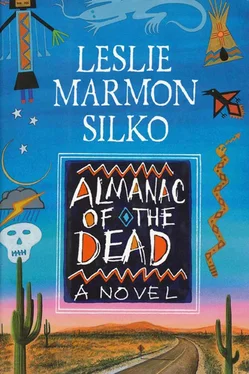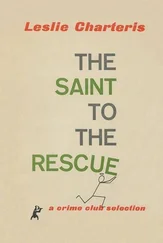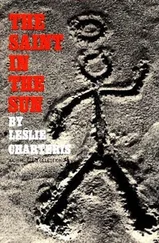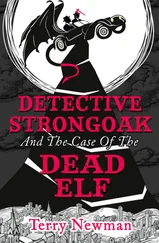All night long in Room 1212 they had discussed a network of tribal coalitions dedicated to the retaking of ancestral lands by indigenous people. Europeans were welcome to convert, or they might choose to return to the lands of their forebears to be close to Europe’s old ghosts. The sun was just rising over the mountains as the meeting in Room 1212 ended. Only Calabazas looked tired, and that had been because he was skeptical. When the Hopi talked about a national or even multinational prison uprising coordinated with the activities of say the eco-warriors dynamiting power plants and high-voltage lines, Calabazas had shook his head. Calabazas feared the jail and prison uprising riots were likely to deteriorate into race riots with the whites and Hispanics and others against the blacks. The Hopi had listened to Calabazas’s doubts respectfully; the Hopi smiled and shrugged his shoulders. Of course it would not be an easy task because the prisons were designed to keep inmates at war with each other. The Hopi knew he had his work cut out for him, but the Hopi also had a growing number of disciples inside and outside jails and prisons all over the United States. At that point, Clinton spoke up; Clinton said he was skeptical too, but so far he had seen homeless white men and homeless black men work together for a common cause — survival — just as black men and white men had fought side by side in Vietnam.
Calabazas had been stubborn. They were crazy, he said; they had seen too many Hollywood movies. The minute there were prison riots and unrest in the cities the battle lines would fall along skin color. No, the Hopi had explained patiently, if anything happened, it would be more like the haves, whatever colors they were, killing the have-nots. Anyway, the African Americans would not be the focus of attention; the hundreds of thousands of Native Americans making their way north with the twin brothers would be. Calabazas had been skeptical of the Mexican Indian woman and her account of the spirit messages the twins claimed they got from the big blue macaws the people carried with them. But the Hopi said he believed it was necessary for the hundreds of thousands of Indians to appear from the South to prevent whites from turning on blacks in the United States. Almost immediately whites would look to blacks and Hispanics as buffers or shields, and mediators between themselves and the great migration of Native Americans. Calabazas was skeptical that the millions of U.S. citizens who called themselves Christians would even tolerate, much less support, a Native American religious movement to reclaim the Americas from the destroyers. Still, the heat waves and droughts had already driven thousands north to cooler temperatures. All the big shade trees in Tucson had died as the water table plunged precipitously.
Until the twin brothers and the people had reached the border, the Hopi advised they should all make preparations and then simply wait. As Wilson Weasel Tail’s Ghost Dance song had stated, white people seemed to be having nervous breakdowns and psychotic episodes in record numbers. The Hopi said perhaps the whites could sense the changes that were approaching. What they had done to others was coming back on them; the tables had turned; now the colonizers were being colonized.
Calabazas said he didn’t believe in miracle conversions of Christians or Jews or Moslems back to tribal religions, and the Hopi winked and said, “But you do believe in mass hysteria? The collective need to see drops of real blood on Church statues during Lent? You know something about mass hypnosis and subliminal messages.” The Hopi smiled. “Anyway, no one says it will happen right away tomorrow. No one says anything like that. Native American people have been on these continents thirty thousand years, and the Europeans have been here for five hundred.”
The Hopi had talked about peaceful and gradual changes as if he believed voting would become the solution as soon as millions more Indians became U.S. citizens. Lecha watched the expression on Angelita’s face as the Hopi had outlined the possibilities for peaceful changes. Each time the Hopi said “nonviolent free elections,” Angelita had grimaced. Lecha could see Angelita suspected the truth: there would be no elections; great struggles were about to sweep all through the Americas as far north as Alaska and Canada. Angelita La Escapía was one tough she-dog; Lecha could see that in the Mayan’s barrel figure and steely, dark eyes. Angelita only pretended to agree with the twin brothers and their followers, unarmed and humble as they walked northward to fulfill an ancient prophecy. Lecha had seen the twin brothers on satellite TV. They looked to be hardly more than twenty-two or twenty-three years old, and easy to manipulate by the likes of Angelita. Lecha wasn’t fooled; it was that big Mayan woman who was behind the twin brothers. Lecha had watched Angelita whisper to Zeta, and Zeta had made a lengthy reply. Later when Lecha asked her, Zeta admitted Angelita had asked about buying a few army surplus Stinger missiles. Lecha thought Angelita was right. The Hopi and the twin brothers might sincerely believe their recovery of the Americas could take place without bloodshed, but Lecha had her doubts especially since the hideous slaughter that had occurred in South Africa. These American continents were already soaked with Native American and African blood; violence begat violence, but if the destroyers were not stopped, the human race was finished.
Calabazas took the words of the Hopi to heart. He believed the change was in motion and was a process that had never stopped; it would all continue with or without him. Calabazas could sit back and do nothing if he wanted to and still the changes were inevitable. All the same, Calabazas felt uneasy. He had trusted the men who had been in Room 1212, but he wasn’t sure about the women, especially not the Eskimo or the Maya woman. Those two looked like troublemakers; they looked like killers if a man didn’t cooperate. The Eskimo woman said “quality, rather than quantity,” and she had been talking about the Indigenous People’s Army of the North. They might be few, but they were fierce and well armed. The Army of the North would sweep down behind the U.S. forces along the Mexican border. Before Weasel Tail knew it, his Lakota armies had been absorbed into the Army of the North. Weasel Tail was a smart man because he didn’t object. No objections or resistance would stop the Maya woman or the other one, the Eskimo. Fire. All the Eskimo woman had talked about was fire. Forests and tundra burning. The earth burning. La Escapía — why, just her name — she was no better. She had talked about the fire macaw who brings destruction.
Wilson Weasel Tail and the Hopi could talk all they wanted about peaceful revolutions, but Calabazas had seen the Maya La Escapía talking to Zeta, and he knew what that meant. For years Zeta had been buying and stockpiling weapons in the old mine shafts. Calabazas was content to retire from smuggling, politics — everything; he had put in his time and had earned a rest in the shade with his little mule and burros. Calabazas would sit back and let the others make the decisions and give the orders, the way he always had, since he was a child with the old-time people in the Yaqui mountain strongholds. They had told him what must be done and he had done it. Since he was an old man now, maybe the women would give him something easy to do, something that wasn’t too strenuous or too dangerous — maybe answering the phone or mailing letters.
RISE UP!
 THE TUCSON POLICE had used SWAT teams to raid the homeless camps. They had used armored vehicles to smash down the cardboard and tin lean-tos and tents pitched under mesquite trees. The SWAT team had hit the camp with the women and children too, and the screaming children had been taken from their mothers to “protective custody” in State foster homes. But at the war veterans’ camp, the SWAT team had stopped as if by hypnosis. They had seemed paralyzed by the sight of the homeless war veterans standing at attention in their raggedy army-surplus uniforms without any weapons. Clinton would never forget that moment. Rambo-Roy had addressed the men: “You didn’t fight and almost die for the United States to end up like this. You didn’t crawl on your belly through bullets, blood, and poison snakes in foreign countries just to starve and sleep in a ditch when you got back home!”
THE TUCSON POLICE had used SWAT teams to raid the homeless camps. They had used armored vehicles to smash down the cardboard and tin lean-tos and tents pitched under mesquite trees. The SWAT team had hit the camp with the women and children too, and the screaming children had been taken from their mothers to “protective custody” in State foster homes. But at the war veterans’ camp, the SWAT team had stopped as if by hypnosis. They had seemed paralyzed by the sight of the homeless war veterans standing at attention in their raggedy army-surplus uniforms without any weapons. Clinton would never forget that moment. Rambo-Roy had addressed the men: “You didn’t fight and almost die for the United States to end up like this. You didn’t crawl on your belly through bullets, blood, and poison snakes in foreign countries just to starve and sleep in a ditch when you got back home!”
Читать дальше

 THE TUCSON POLICE had used SWAT teams to raid the homeless camps. They had used armored vehicles to smash down the cardboard and tin lean-tos and tents pitched under mesquite trees. The SWAT team had hit the camp with the women and children too, and the screaming children had been taken from their mothers to “protective custody” in State foster homes. But at the war veterans’ camp, the SWAT team had stopped as if by hypnosis. They had seemed paralyzed by the sight of the homeless war veterans standing at attention in their raggedy army-surplus uniforms without any weapons. Clinton would never forget that moment. Rambo-Roy had addressed the men: “You didn’t fight and almost die for the United States to end up like this. You didn’t crawl on your belly through bullets, blood, and poison snakes in foreign countries just to starve and sleep in a ditch when you got back home!”
THE TUCSON POLICE had used SWAT teams to raid the homeless camps. They had used armored vehicles to smash down the cardboard and tin lean-tos and tents pitched under mesquite trees. The SWAT team had hit the camp with the women and children too, and the screaming children had been taken from their mothers to “protective custody” in State foster homes. But at the war veterans’ camp, the SWAT team had stopped as if by hypnosis. They had seemed paralyzed by the sight of the homeless war veterans standing at attention in their raggedy army-surplus uniforms without any weapons. Clinton would never forget that moment. Rambo-Roy had addressed the men: “You didn’t fight and almost die for the United States to end up like this. You didn’t crawl on your belly through bullets, blood, and poison snakes in foreign countries just to starve and sleep in a ditch when you got back home!”










